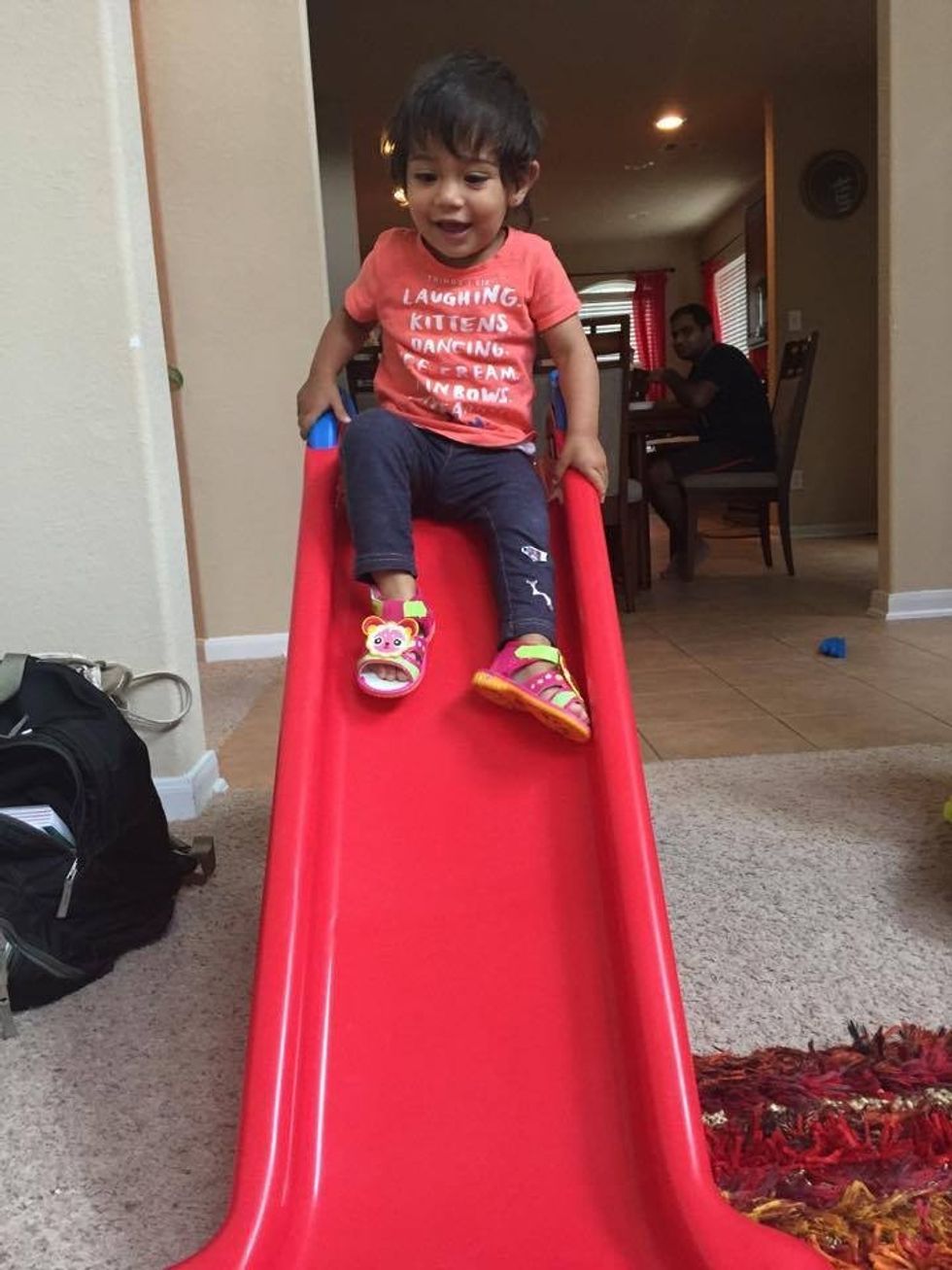A few weeks ago, I spent some time with my relatives in Houston who have a one-and-a-half-year-old daughter. As we were driving to a restaurant for dinner, we passed by an interesting piece of architecture.
“Oh wow, look at that!” my aunt said, pointing toward the window at the building.
Just like a parrot, my baby cousin piped in with an “Oh wow!” before she turned her head toward us for confirmation. We all burst out laughing, as my cousin started giggling and saying “Oh wow!” over again.
Now, my cousin probably had no idea what she was saying and why we were laughing. But she had learned the phrase from the situation and saw a positive reaction. So, she mimicked what her mom said and also got a response she liked.
Now this isn't some breakthrough development — it’s common knowledge that children learn best by copying their parents’ actions or speech. That’s why parents are careful with what they say or do in front of their kids, because who knows what they could pick up from them.
But this mimicry and behavior matching does not solely occur among children; we all consciously or subconsciously experience it.
I recently had my own “oh wow!” moment this past week. I had to meet with a friend to go through details for an extracurricular club on campus. As we were texting back and forth to figure out where to meet, he stopped mid-conversation and said, “You literally sound just like me.”
“Lol what,” I responded.
My friend then proceeded to pull out specific words and phrases that I had been texting him, which were similar or almost exactly the same phrases and wordings. I had been subconsciously mimicking my friend’s language when talking to him, based on the way he was talking to me.
It makes sense that when you spend time with certain people your mannerisms and vocabulary will adapt to match each other; that’s why so many friend groups become closer and more similar because everyone is learning from each other. While some of these changes can be adapted organically, it’s also important to notice which habits to pick up on.
Children are lucky in the sense that parents purposely expose them to certain behaviors for them to learn. As we get older, we are exposed to everything and everyone. We're not shielded from bad influences because we're capable enough to understand what would be a good choice. So in the same vein of adapting mannerisms from friends, it is also important to notice and avoid any bad habits. The best type of friendship is when both people pick up each other’s beneficial acts while acknowledging and avoiding any bad nature.
After the realization I had with my friend, I took a screenshot of the conversation and sent it to another mutual friend, jokingly saying, “SOS I need an intervention.” The mutual friend responded, “Haha it’s too late, we’re all in too deep.”
Guess this friendship is gonna last a long time.




















